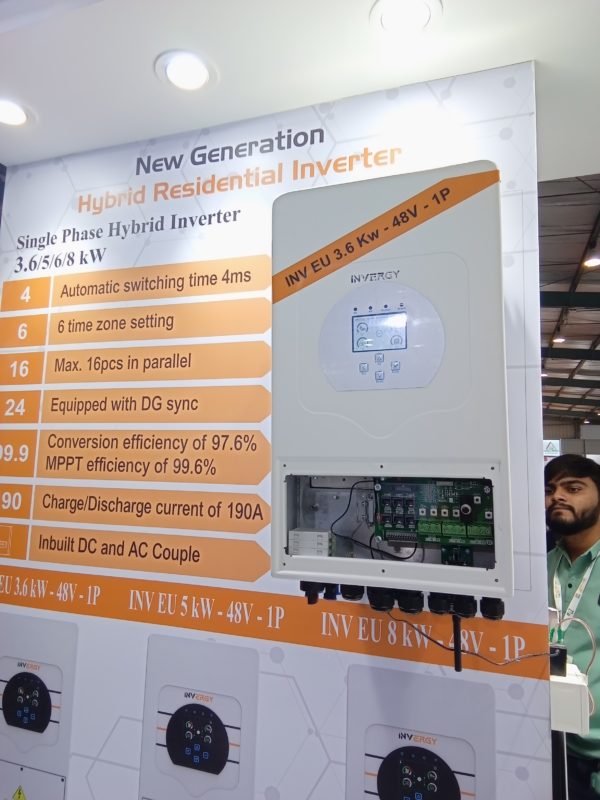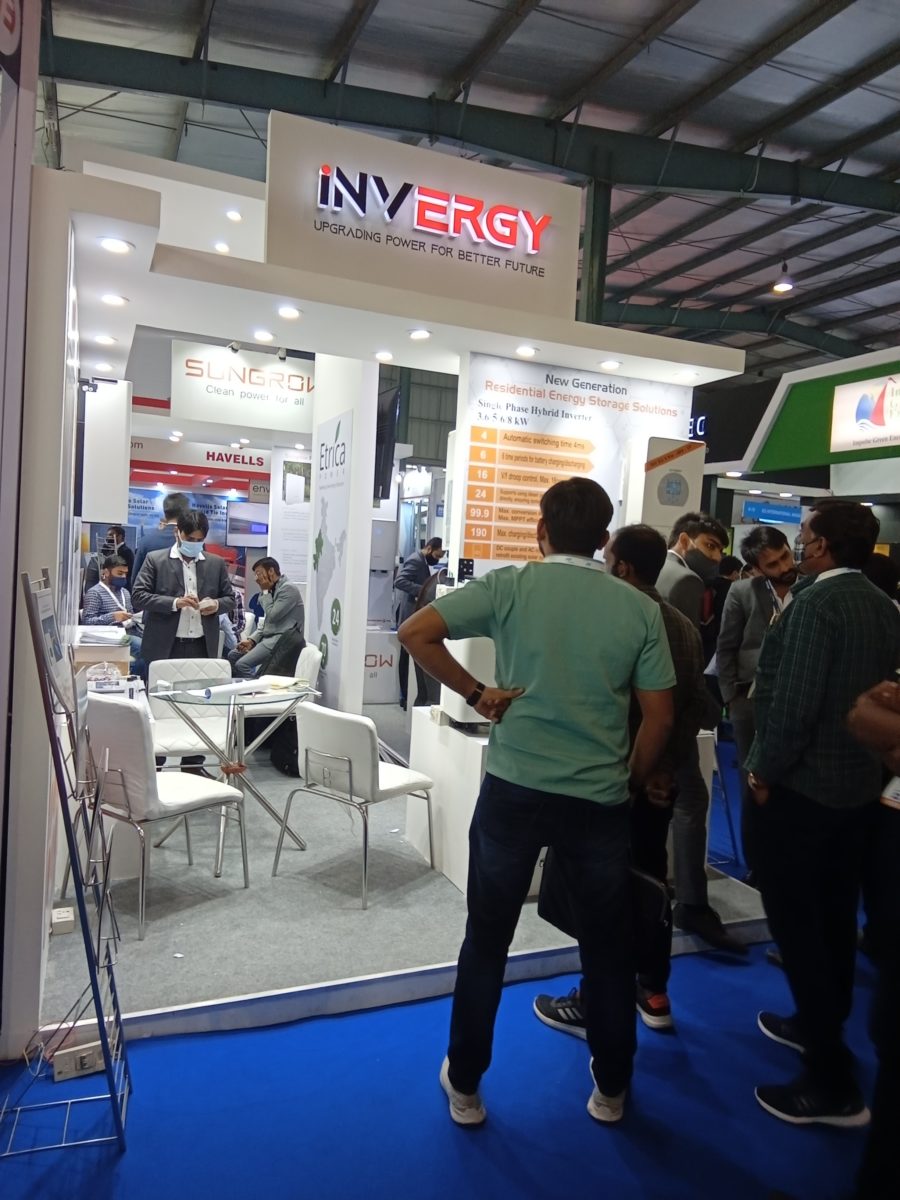London-based inverter and battery company Invergy, which this year launched its hybrid solar inverters in India, is targeting residential arrays with 3-12 kW products for use in single and three-phase set-ups.
As part of its push for Indian customers, the company will build an inverter factory in Noida, Uttar Pradesh by May which will be able to manufacture 5 MW of products annually.
Invergy director Deepak Pandey told pv magazine: “Our product line is not in competition with other inverter brands present in India. Ours are next-generation inverters with features that have not been introduced in India ’till today. These are IP65-compatible units compatible with both lithium-ion and lead-acid batteries. Currently, the inverters available in the Indian market are mostly compatible with only [a] lead-acid or lithium battery.”

Taken by Uma Gupta at Intersolar 2021
“Our inverters are scalable. So, you can get 50 kW output by placing 5 kW inverters in ten rows in parallel. You can connect up to 16 … rows. The maximum capacity, in that case, will be somewhere around 75 kW, with 5 kW units. The best part is, our single-phase inverters can be connected in three-phase mode and give a three-phase output.”
Invergy lays claim to 10 MW of manufacturing capacity catering to the residential solar market in Europe, West Africa, Dubai, and India.
“We want to manufacture in India as the response from the Indian market is good,” added Pandey. “Also, the Make in India concept is there. The increased [customs] duties on the import of completely-built units is among other reasons [for our expansion in India].”
This content is protected by copyright and may not be reused. If you want to cooperate with us and would like to reuse some of our content, please contact: editors@pv-magazine.com.









Please what is FOB price for 5 KW inverter and warrenty.
we have to check this is allowed in Pakistan or it is ban
other than this we need PSI and COC from SGS
regards
Shah Kamal
Alternate Energi
Karachi-Pakistan
0092 300 8265563 whatsup
Dear sir/madam
I would like to introduce to you that
We are in needs of buying the below Products from your valued
Company.Automotive battery, Solar panels,Solar Battery, Hybrid Solar Inverter,
Solar water Heaters, Solar water pumps,Generators,Hardware Tools. etc.. I
will be please
to receive your
reply by quoting for us prices of the above C&F transportation to
Mombasa Kenya seaport, East-Africa.Since we are
basically interested in purchasing a huge volumes of those items.your
company by adding us to some
of your products on your supply line under the payment of O/A,D/P/DA
If is okay with you
please send us an email and let us
know the procedures so that we go ahead with the business.
Regards William
EU 8.0 kw hybrid inverter
Dc 48
P 1